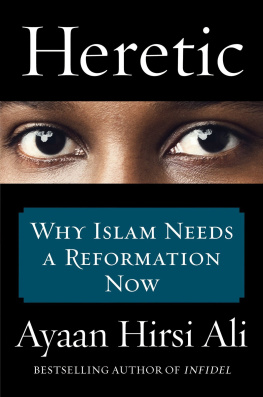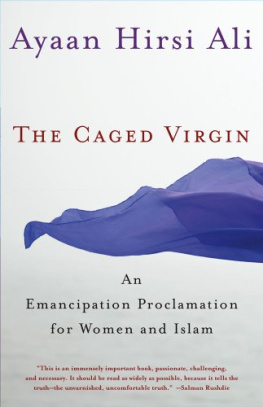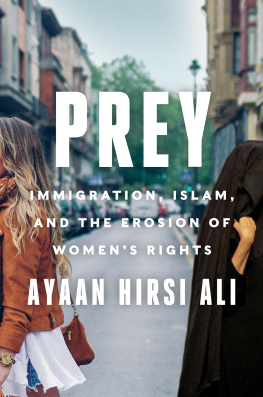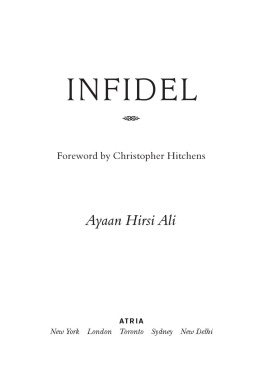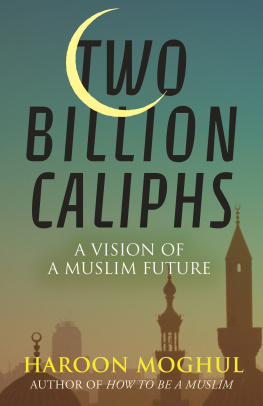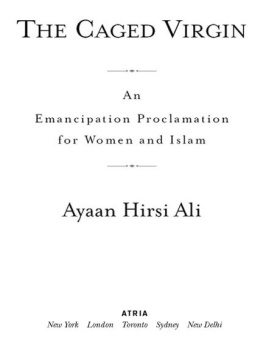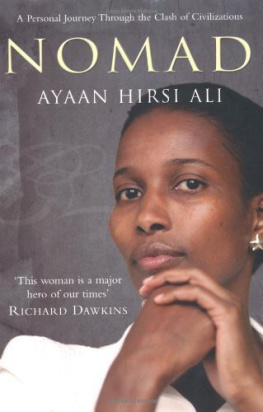Muhammad and the Quran: How Unquestioning Reverence for the Prophet and His Book Obstructs Reform
Shackled by Sharia: How Islams Harsh Religious Code Keeps Muslims Stuck in the Seventh Century
Social Control Begins at Home: How the Injunction to Command Right and Forbid Wrong Keeps Muslims in Line
INTRODUCTION
ONE ISLAM, THREE SETS OF MUSLIMS
On ______ , a group of ______ heavily armed, black-clad men burst into a ______ in ______ , opening fire and killing a total of ______ people. The attackers were filmed shouting Allahu akbar!
Speaking at a press conference, President ______ said: We condemn this criminal act by extremists. Their attempt to justify their violent acts in the name of a religion of peace will not, however, succeed. We also condemn with equal force those who would use this atrocity as a pretext for Islamophobic hate crimes.
A s I revised the introduction to this book, four months before its publication, I could of course have written something more specific, like this:
On January 7, 2015, two heavily armed, black-clad attackers burst into the offices of Charlie Hebdo in Paris, opening fire and killing a total of ten people. The attackers were filmed shouting Allahu akbar!
But, on reflection, there seemed little reason to pick Paris. Just a few weeks earlier I could equally as well have written this:
In December 2014, a group of nine heavily armed, black-clad men burst into a school in Peshawar, opening fire and killing a total of 145 people.
Indeed, I could have written a similar sentence about any number of events, from Ottawa, Canada, to Sydney, Australia, to Baga, Nigeria. So instead I decided to leave the place blank and the number of killers and victims blank, too. You, the reader, can simply fill them in with the latest case that happens to be in the news. Or, if you prefer a more historical example, you can try this:
In September 2001, a group of 19 Islamic terrorists flew hijacked planes into buildings in New York and Washington, D.C., killing 2,996 people.
For more than thirteen years now, I have been making a simple argument in response to such acts of terrorism. My argument is that it is foolish to insist, as our leaders habitually do, that the violent acts of radical Islamists can be divorced from the religious ideals that inspire them. Instead we must acknowledge that they are driven by a political ideology, an ideology embedded in Islam itself, in the holy book of the Quran as well as the life and teachings of the Prophet Muhammad contained in the hadith.
Let me make my point in the simplest possible terms: Islam is not a religion of peace.
For expressing the idea that Islamic violence is rooted not in social, economic, or political conditionsor even in theological errorbut rather in the foundational texts of Islam itself, I have been denounced as a bigot and an Islamophobe. I have been silenced, shunned, and shamed. In effect, I have been deemed to be a heretic, not just by Muslimsfor whom I am already an apostatebut by some Western liberals as well, whose multicultural sensibilities are offended by such insensitive pronouncements.
My uncompromising statements on this topic have incited such vehement denunciations that one would think I had committed an act of violence myself. For today, it seems, speaking the truth about Islam is a crime. Hate speech is the modern term for heresy. And in the present atmosphere, anything that makes Muslims feel uncomfortable is branded as hate.
In these pages, it is my intention to make many peoplenot only Muslims but also Western apologists for Islamuncomfortable. I am not going to do this by drawing cartoons. Rather, I intend to challenge centuries of religious orthodoxy with ideas and arguments that I am certain will be denounced as heretical. My argument is for nothing less than a Muslim Reformation. Without fundamental alterations to some of Islams core concepts, I believe, we shall not solve the burning and increasingly global problem of political violence carried out in the name of religion. I intend to speak freely, in the hope that others will debate equally freely with me on what needs to change in Islamic doctrine, rather than seeking to stifle discussion.
Let me illustrate with an anecdote why I believe this book is necessary.
In September 2013, I was flattered to be called by the then-president of Brandeis University, Frederick Lawrence, and offered an honorary degree in social justice, to be conferred at the universitys commencement ceremony in May 2014. All seemed well until six months later, when I received another phone call from President Lawrence, this time to inform me that Brandeis was revoking my invitation. I was stunned. I soon learned that an online petition, organized initially by the Council on American Islamic Relations (CAIR) and located at the website change.org, had been circulated by some students and faculty who were offended by my selection.
Accusing me of hate speech, the change.org petition began by saying that it had come as a shock to our community due to her extreme Islamophobic beliefs, that Ayaan Hirsi Ali would be receiving an Honorary Degree in Social Justice this year. The selection of Hirsi Ali to receive an honorary degree is a blatant and callous disregard by the administration of not only the Muslim students, but of any student who has experienced pure hate speech. It is a direct violation of Brandeis Universitys own moral code as well as the rights of Brandeis students.
No fewer than eighty-seven members of the Brandeis faculty had also written to express their shock and dismay at a few brief snippets of my public statements, mostly drawn from interviews I had given seven years before. I was, they said, a divisive individual. In particular, I was guilty of suggesting that:
violence toward girls and women is particular to Islam or the Two-Third World, thereby obscuring such violence in our midst among non-Muslims, including on our own campus [and]... the hard work on the ground by committed Muslim feminist and other progressive Muslim activists and scholars, who find support for gender and other equality within the Muslim tradition and are effective at achieving it.
On scrolling down the list of faculty signatories, I was struck by the strange bedfellows I had inadvertently brought together. Professors of Womens, Gender and Sexuality Studies lining up with CAIR, an organization subsequently blacklisted as a terrorist organization by the United Arab Emirates? An authority on Queer/Feminist Narrative Theory siding with the openly homophobic Islamists?
It is quite true that in February 2007, when I still resided in Holland, I told the London Evening Standard : Violence is inherent in Islam. This was one of three brief, selectively edited quotations to which the Brandeis faculty took exception. What they omitted to mention in their letter was that, less than three years before, my collaborator on a short documentary film, Theo van Gogh, had been murdered in the street in Amsterdam by a young man of Moroccan parentage named Mohammed Bouyeri. First he shot Theo eight times with a handgun. Then he shot him again as Theo, still clinging to life, pleaded for mercy. Then he cut his throat and attempted to decapitate him with a large knife. Finally, using a smaller knife, he stuck a long note to Theos body.

